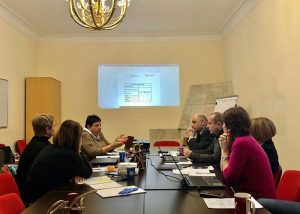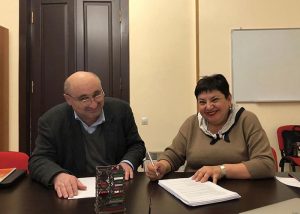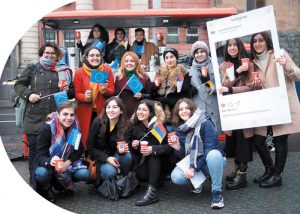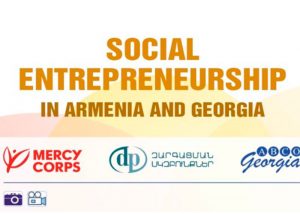SEAG PROGRAM
Home » Projects » Ongoing Projects » SEAG program
The Social Entrepreneurship in Armenia and Georgia (SEAG) programme was designed to foster youth employment and societal change. This programme was initiated in response to the European Commission’s EU4Youth initiative and is implemented by the following partners: Mercy Corps and regional partners – the Association of Business Consulting Organisations of Georgia (ABCO) and Armenian NGO, Development Principles (DP).
This 30-month programme started in February 2020, and will build upon and complement the approaches and lessons learned from the EU4Youth programme launched in 2017, as well as the market development and youth programmes implemented by Mercy Corps, ABCO and DP over the past 19 years in Georgia and Armenia. Collaborating with private sector actors, local and national governments, business development services providers, educational institutions, and EU4Youth implementers, SEAG will build the capacity of youth to engage in social entrepreneurship in border regions of Georgia and Armenia.
SEAG will result in new economic pathways for youth by strengthening the social entrepreneurship sector. SEAG’s overall objective is to foster the entrepreneurial potential of young people (ages 18-29) from Armenia and Georgia in the field of social entrepreneurship, notably with a view to contribute to social cohesion, employment, inclusion, and reduction of inequalities. Specific objectives of SEAG are:
1) provide creative young people from Armenia and Georgia with the necessary knowledge and skills to establish sustainable social enterprises; and
2) support the development of a favorable ecosystem for social enterprises to develop and prosper in Armenia, Georgia, and the Eastern Partnership region (EaP).
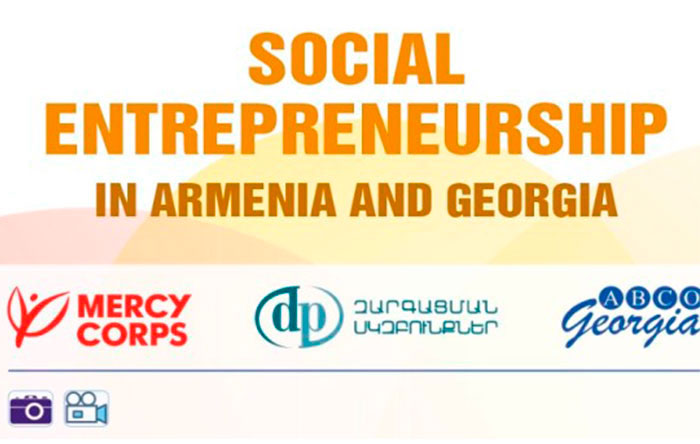
SEAG will prioritise disadvantaged youth and enterprises that address the most pressing social and environmental issues in both countries to achieve three primary outputs:
– Improved skills, knowledge, and capacities related to social entrepreneurship for youth;
– Increased access to finance, business support structures, networks, and key market actors that will help youth social entrepreneurs thrive; and
– Strengthened ecosystem for youth-focused social entrepreneurship in Armenia and Georgia.
The SEAG programme will operate in three regions of Georgia: Kakheti, KvemoKartli, and Samtskhe-Javakheti (20 municipalities and one self-governing city); and three marzes in Armenia: Shirak, Lori, and Tavush (17 semi-urban and 278 rural communities). The total population of all six regions is around 1.5 million. These regions are located strategically at the borders of both countries, ensuring cross-border programming covering more than 400 communities in Armenia and Georgia. These regions were selected based on the significant number of ethnic minorities, the potential for social enterprise growth, partners’ established relationships and regional knowledge, and large populations of youth (between 20% and 25% of the local population).
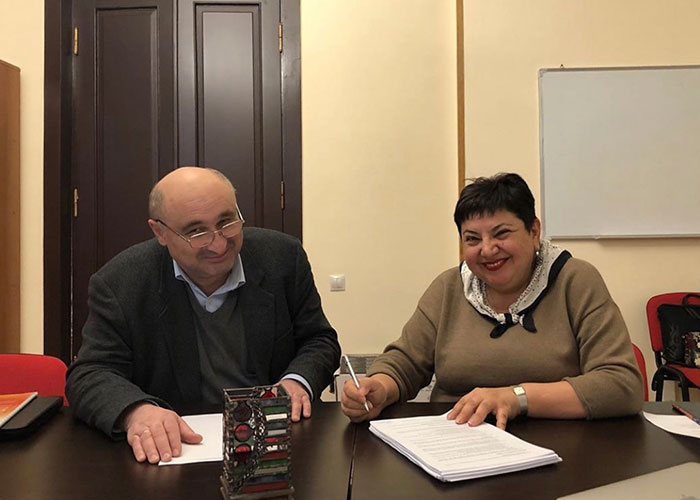
To achieve these objectives SEAG will:
Develop the skills and knowledge base of young programme beneficiaries through direct training in business acumen for existing and aspiring social entrepreneurs. SEAG will build the capacity of 50 new and existing social enterprise managers and staff, and 1,000 aspiring young entrepreneurs. Actions will lead to the formal registration of at least 24 new social enterprises with viable business plans and clear social missions in the six regions. SEAG will impact final beneficiaries of the broader private sector and business communities, representing an estimated 50,000 indirect beneficiaries (residents in more than 400 target communities).
Develop or replicate mentoring programmes in established businesses to build relations between young entrepreneurs and more seasoned business veterans, and to foster a culture of mentoring in Armenia and Georgia. Local and regional mentors will help guide Georgian and Armenian mentees in identified professional growth areas unique to their business and sector. SEAG will develop cross-border peer mentoring exchanges as well.
Facilitate the establishment of two cooperation fora: one each in Georgia and Armenia. They will convene key market actors, decision-makers, influencers, multi-level government officials, and youth representatives of key public and private stakeholders for national-level dialogue around youth- and gender-focused support for social entrepreneurism.
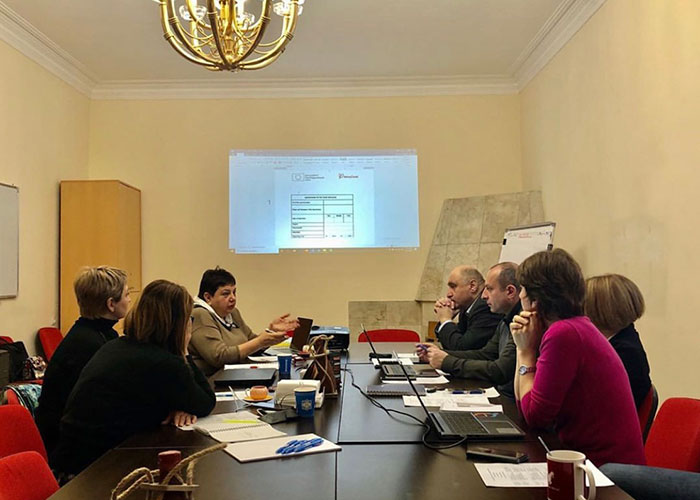
Social actions undertaken by these enterprises include: employment of people with disabilities, support of vocational education, environmental protection, and donations to address community social and economic needs.
Social enterprises engaged in the proposed project will be selected based on their impact on social issues, their likelihood of providing employment for disadvantaged youth, gender equity, profitability, sustainability prospects, the potential for growth and scale, and their innovation or use of digital solutions.
***
Mercy Corps, ABCO, and DP bring unique technical expertise and experience to address the systemic barriers in the social entrepreneurship market for youth. Mercy Corps has been working in Georgia since 2000 and has implemented transboundary programmes with Armenia since 2011, primarily in improving market systems for agricultural businesses to thrive and address climate change. ABCO has over 18 years of experience improving Georgia’s private sector quality, integrity, and organisational development of small and medium enterprises (SMEs). ABCO members represent 30 different business centres located in rural municipalities of Georgia. ABCO is the leading organisation in providing Business Development Services and related trainings. The Armenian Development Principles NGO has 15 years of experience improving the country’s socio-economic development through enhanced livelihoods opportunities and empowerment of rural communities, women’s empowerment, and youth leadership development.
All project implementers have vast experience in building the capacity of social enterprises; they possess strong managerial expertise and are well placed to conduct trainings themselves, respectively, in Georgia and Armenia
